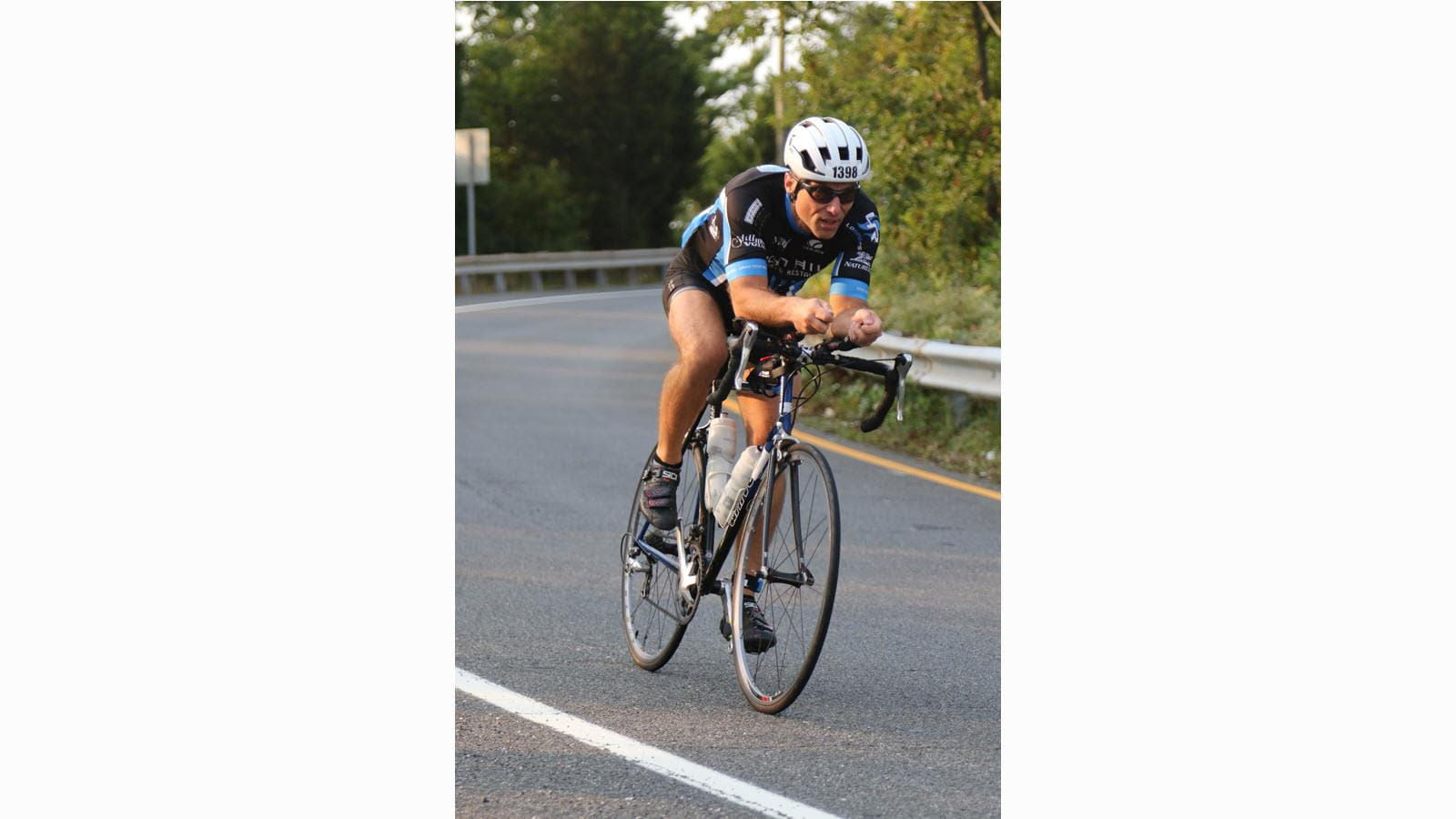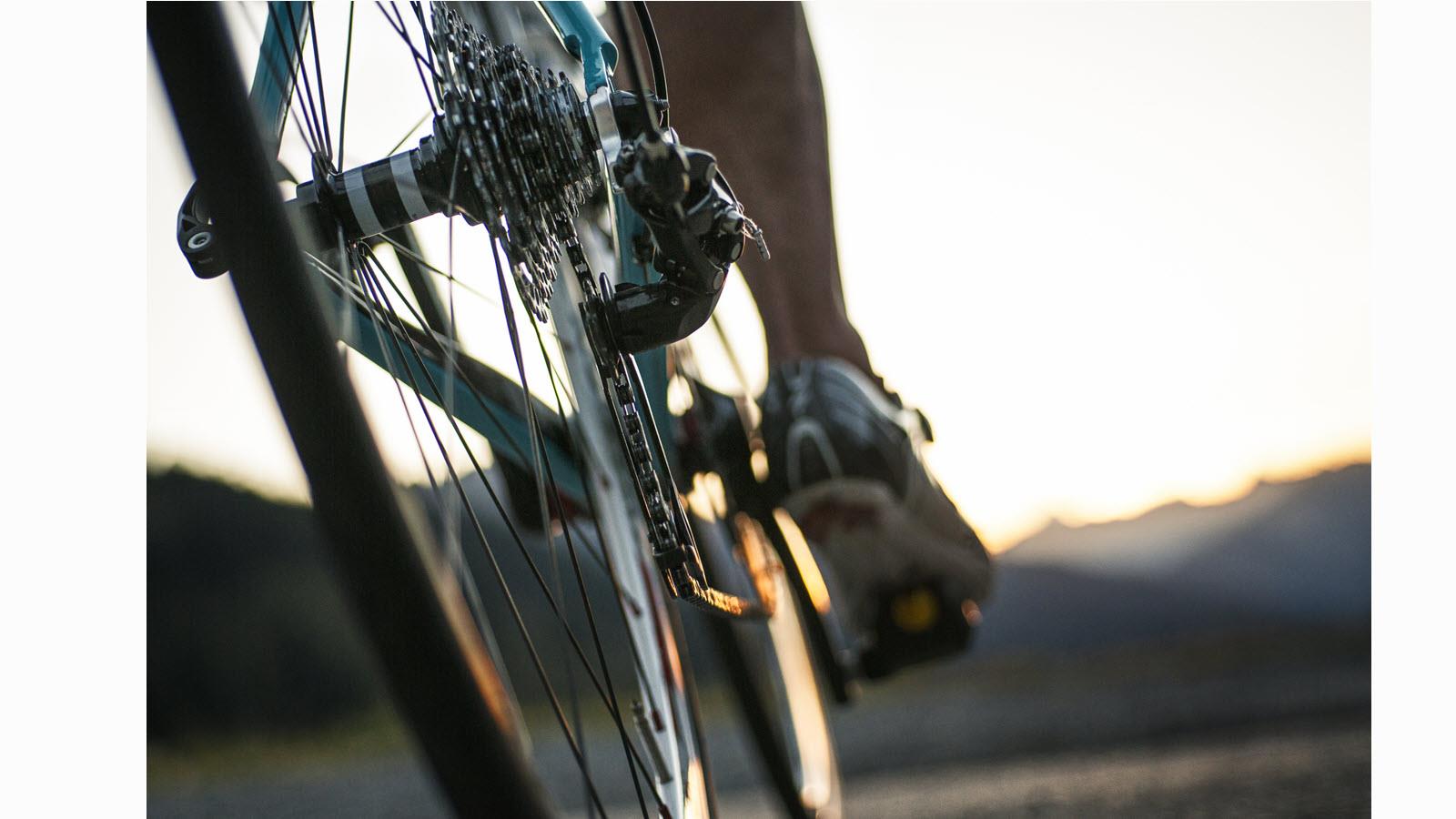“Escaping to the Cape” doesn’t mean lazy beach days for the CSL cyclists getting ready for a fundraising trek along the shores and among the dunes of Cape Cod, Massachusetts.
Phil Klara, an Associate Director in Marketing and a triathlete, plans to cycle more than 100 miles during the weekend event, which begins with an optional 36-mile ride on Friday, September 22. He’ll be joined by CSL team members – and supported by CSL volunteers – for 55 more miles on Saturday and another 44 miles on Sunday.
The Escape to the Cape Trek has become a CSL tradition and is a show of solidarity with patients who live with the rare disease Alpha 1 Antitrypsin Deficiency. The genetic condition affects the lungs because a protective protein is lacking. CSL Behring makes medicines for serious and rare diseases, including Alpha 1.
We asked Klara, pictured below, to offer advice for beginners considering a long-distance ride like Escape to the Cape:

At a minimum, what training and prep should a cyclist do beforehand if they are not a regular cyclist?
For those who haven’t been on the bike in some time, know that just overall fitness will go a long way toward boosting endurance. With only a few weeks prior to your ride, all will benefit from “seat time.” It’s not about starting an accelerated training plan, but rather to become more comfortable on the bike over longer periods of time. This allows the rider to quickly regain the skills and balance needed for group cycling and time to adjust the bike for the proper fit.
What would you suggest regarding equipment for first-time participants?
The newer rider will want to assemble the personal gear they plan to use throughout the event, starting with the helmet. Proper fit is key to a helmet performing its job, but also perform a visual inspection for dents, scrapes, and any other imperfections. When in doubt, purchase a new helmet from your local bike shop. Other essential biking gear includes eyewear, bike shorts, and some would say biking gloves. Depending on the design of pedals, riders may either use walking/running shoes or more cycling specific “clip-in” shoes.
You also have to be aware of the weather, including temperature ranges, wind and chance of precipitation. Having a lightweight, packable rain/windbreaker and even a base layer for warmth may be advised.
Having a well-fitted bike and proper gear prepares a cyclist to enjoy every mile. Whatever your fitness level on the day of the event, just find a comfortable pace, hydrate often and fuel your body with nutrition and take breaks when needed. Enjoy the amazing scenery and each mile will pass too quickly.
Besides personal gear, basic tools to change a flat tire would be helpful (spare tube, tire levers, pump). A ride like Escape to the Cape is fully supported, but taking care of your own situation can have you back on the road in minutes.
Any recommendations on eating and nutrition during the ride?
Cycling over 40-50 miles is an endurance sport and nutrition needs to fuel the body throughout. Be aware of hydration, electrolytes and options for carbohydrates and fats primarily. Some of us can eat literally anything and function at peak but the rest will want to stick to what is familiar and proven to maintain energy levels. That said, Escape the Cape is a fun event and the experience can include indulging in some yummy treats.
What are some rookie errors when attempting a long-distance ride?
Comfort more than fitness level will result in the most positive experience for the rider. Visit a bike shop or have an experienced rider help to ensure your bike is functioning properly. Make adjustments over the course of training rides rather than during an event. Have all of your essential gear well-fitted and tested. Try not to introduce anything new on the day of the event.
Klara also gave the CSL Team some guidance on another aspect of participating in a group bike trek – how to travel safely in a group. It comes down to maintaining a safe distance, staying aware, managing traffic signals and communicating effectively, he said.
If you’re not quite ready for 100 miles on Cape Cod, you can still take part from home. During the month of September, the Alpha-1 Foundation is encouraging cyclists of all levels to set their own goals and achieve them to raise funds and awareness. Learn how to join the Virtual Ride for a Reason.



